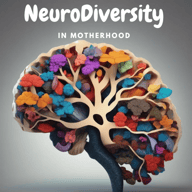Cognitive Behavioral Therapy (CBT): Fundamentals and the Journey of Aaron T. Beck


This blog aims to clarify the fundamental concepts of Cognitive Behavioral Therapy (CBT) and explore the journey of Aaron T. Beck's work. CBT has stood out as a practical approach in psychotherapy, relying on a solid theoretical foundation and extensive empirical support that has proven effective in mental and emotional well-being for different conditions.
As mothers raising a neurodiverse child, we may one day need to consider professional help, and CBT is a promising therapy to consider. Our journey can be challenging, and we may need an approach to help us manage our emotions and behaviours more, making us active participants in our healing process.
What is Cognitive Behavioral Therapy (CBT)?
Cognitive Behavioral Therapy is a structured therapeutic approach focused on resolving specific problems by modifying thought (mental) and behavioural patterns. The central assumption of CBT is that our thoughts (cognitions) directly influence our emotions and behaviours. For instance, a person with social anxiety might have the automatic thought, 'Everyone is looking at me and judging me, leading to feelings of fear and avoidance behaviours. Dysfunctional or distorted thoughts like these can lead to negative emotions and counterproductive behaviours.
CBT sessions are not just about the therapist guiding and supporting the patient but about a collaborative effort in which both parties work together to identify and challenge negative automatic thoughts, test their reality, and restructure them. This approach promotes more adaptive emotions and behaviours, making patients actively participate in their healing process.
The effectiveness of CBT is well-documented in the scientific literature. According to a meta-analysis study, Hofmann et al. (2012) identified that CBT is effective in treating a variety of conditions, such as depression, anxiety, post-traumatic stress disorder, and other emotional disorders.
Aaron T. Beck: Brief Life History
Aaron Temkin Beck was born in Providence, Rhode Island, USA, on July 18, 1921. The son of Russian Jewish immigrants, Beck faced various challenges in childhood, including health problems, which motivated him to overcome adversity with determination. He completed his undergraduate studies at Brown University in 1942 and later graduated from the Yale School of Medicine in 1946.
Initially trained in psychoanalysis, Beck became interested in the study of automatic thoughts while working with depressive patients. Automatic thoughts are the rapid, uncontrolled thoughts that often occur in response to a situation or event. These thoughts are usually negative and can lead to emotional distress. He realised that the way patients perceived and interpreted the world around them, particularly these automatic thoughts, was closely linked to their mental health. These observations led him to develop Cognitive Behavioral Therapy in the 1960s.
Aaron T. Beck founded the Beck Institute for Cognitive Behavior Therapy in 1994 alongside his daughter, Judith S. Beck, a prominent psychologist. The Beck Institute is a leading international organisation that provides training, certification, and resources in CBT. Over the years, it has continued to be a global reference in CBT training and research. Aaron T. Beck also authored several books and over 600 academic articles, which are considered foundational in the literature of CBT.
Beck's work and legacy in psychotherapy are transforming clinical research and therapeutic practices worldwide. His approach to understanding and treating mental disorders through the lens of cognitive processes has not only changed the field of mental health but also inspired hope for the future. CBT empower individuals to manage their thoughts and feelings and promotes more adaptive emotions and behaviours, making the individual an active participant in their healing process.
